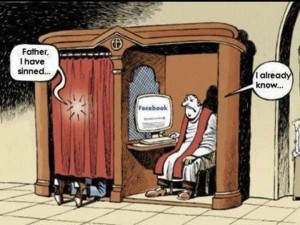[Continuing the final chapter of Neil Gillman’s book The Death of Death: Resurrection and Immortality in Jewish Thought; this is an ebook downloadable on the kindle app from amazon.com; reformatted for posting; highlights ours.—Admin1].
—————————-
Religion and the Afterlife
The impulse to create that broader structure, to knit together the discrete moments of a human life into a pattern of meaning is precisely the function of religion. Religion, the anthropologist Clifford Geertz reminds us, formulates “conceptions of a general order of existence.” The operative word here is “order.” Religion orders our world, discerns patterns in what appears to be anarchy, wrests cosmos out of chaos, sense out of senselessness.
To claim that death is final is to subvert the order that religion imposes on our experience. And that, too, is our existential claim, one which cannot be supported by rational or empirical data, yet one that even a Sherwin Nuland would agree with. His entire book, How We Die, attempts to show that death is an indispensable part of the natural order. But in the light of what we referred to above as the paradox of human experience, to accept the finality of death is to revert to chaos. Death is the ultimate absurdity, the total annihilation of everything that human life distinctively represents. That is the basis for John Hick‘s insistence that “any religious understanding of human existence—not merely of one’s own existence but of the life of humanity as a whole—positively requires some kind of immortality belief and would be radically incoherent without it.”
It is not only the fact of death that is incoherent. If death is an integral part of our broader life experience, then it also subverts that as well. To insist on the finality of death is to condemn the totality of human life to meaninglessness. Human life cannot be fulfilled here on earth. We are born and grow into adulthood with hopes and visions, goals and ideals, yet most of us prepare to die with a haunting sense of potentials unfulfilled, aspirations unrealized, relationships unresolved, accounts still not balanced. Our life-experience is inevitably fragmented. That pattern lends human life as a whole what Hick calls “a tragic character,” and it leads him to recognize that “if the human potential is to be fulfilled in the lives of individual men and women, those lives must be prolonged far beyond the limits of our present bodily existence.”
This is a singularly modern extension of the impulse which led the author of Daniel to insist that it is the need for retribution that demands a doctrine of resurrection. In Daniel, retribution was a moral issue: God had to reward the martyrs of that age for their loyalty and punish the evil-doers for their treachery, if not in their lifetime then in an afterlife. For us today, retribution is more than a moral issue. It represents the intuitive sense that since humans are born with an impulse to lead fulfilled lives, God must provide a setting for that fulfillment to be achieved, if not now, then in an afterlife.
The Language of Eschatology
The surest way to trivialize any eschatological doctrine is to understand it as literal truth, as a prediction of events that will take place just as they are described in some eventual future. That is the fatal flaw in the arguments, both of modern traditionalist and modern liberal Jews. The former accept it as literally true; the latter reject it because they understand it in the same way. But is there a middle ground?
I believe there is. I believe that the most fruitful way of making sense of these teachings is to understand them as part of Judaism’s classic religious myth.
In the first chapter, I suggested several possible definitions of the term “myth.” I will not recapitulate that discussion here. Suffice it to say that a myth is a way of connecting discrete experiences so that they form a coherent pattern and acquire meaning. Myths, then, are not objectively literal descriptions of some reality “out there” beyond the individual. But neither are they total fictions. Rather, they are subjective, somewhat imaginative portraits that make it possible for our experience of the world to hang together, to be ordered, and thus, to make sense.
Mythic thinking becomes progressively indispensable the more our experience eludes immediate sense-perception, the further we get from what we can directly perceive. That is why scientists who investigate the origins of the world, or the ultimate make-up of the material world, or the dynamics of the human psyche revert to myth. Each of these deals with events or realities that exist “beyond” the range of direct human perception. It is this elusive “beyondness” of some data that makes it inaccessible to our senses and that demands a different way of thinking and talking that can fulfill our need to understand our world.
Dealing with the “beyond” is intrinsic to religious language. All religions speak voluminously of God, a reality that, certainly in Judaism, is beyond direct human apprehension. The same can be said for doctrines of creation, or narratives that describe the founding events of that religion. That God descended upon a mountaintop and spoke to Moses and the children of Israel is classic myth. So is the doctrine that God revealed God’s self in the person of Jesus of Nazareth in the first century of the Common Era, that this man was crucified for the sins of humankind, was resurrected on the third day, and will return to judge all humanity.
These are mythic statements precisely because they speak of the “beyond.” To understand them as literal truths is to trivialize them. To believe, for example, that God literally came down on Sinai and literally spoke to our ancestors is to commit the sin of idolatry, which, in its purest form, reduces God to a natural/human phenomenon. People descend and speak, God does not—except in a mythic way.
All eschatology deals with the “beyond,” with events that will take place beyond the range of time, in some other “age” or “world.” It is simply impossible for human beings to comprehend what this world will look like “after time.” The very phrase is oxymoronic; there simply is no “after” to time. Every “after” remains within time.
Eschatology complements our thinking about creation. Together they deal with the beginnings and endings of all things, with the “beyond” before and after. Thus they provide a frame for the “in between,” which, in classic Jewish religious thinking, is understood as the age of history, the age in which we are now located. They also provide the broad structure which Jews use to make sense of how everything came to be and how all things will eventually end. With this pattern in place, we know “where we are” within the broadest perspective of time. Creation and eschatology provide the frame which gives the portrait integrity. They are properly indispensable.
This book has focused on only one of the many themes that compose Jewish eschatology, the one that deals with the ultimate destiny of the individual human being. We have seen that during its richest phrase, in the Talmudic era, Judaism proffered two doctrines on this theme. One taught that, at the end of time, our bodies will be resurrected; the other maintained that a part of us, our “soul,” never dies, but continues in some other sphere under the loving protection of God. Eventually, these two doctrines were conflated so that, at the end, God will restore our immortal souls to our resurrected bodies. From the age of the Talmud to the dawn of modernity, most Jews accepted some form of this conflated version.
Both doctrines share the classic characteristics of myth. We have no direct apprehension of what constitutes a “soul,” nor can anyone speak in literal terms of what will happen to our bodies after they become dust. Both doctrines take us “beyond” the boundaries of human experience; both strain our normal conceptual faculties and our language. But the alternatives are not simply uncritical literalism or silence. Our task is to understand how the doctrines function as a way of completing the frame which lends coherence to our life experience here on earth.
There are two core arguments for the indispensability of a doctrine of the afterlife.
- One is theological,
- The theological argument stems from the Jewish understanding of God;
- the other is anthropological.
- the anthropological, from its understanding of the nature of the human being.
[Continued in The Theological Argument: God is More Powerful than Death]

























